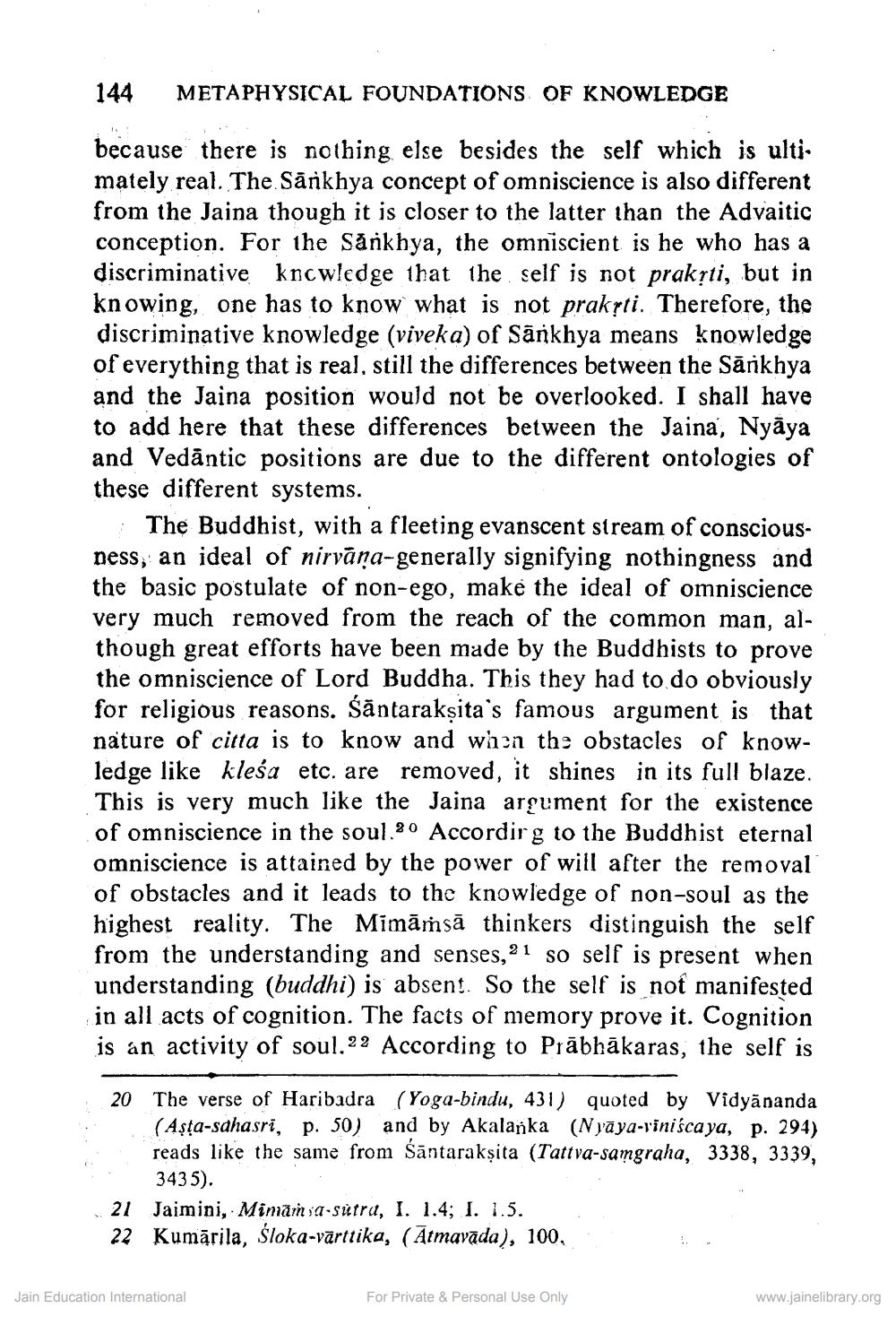________________
144
METAPHYSICAL FOUNDATIONS OF KNOWLEDGE
because there is nothing else besides the self which is ultimately real. The Sārkhya concept of omniscience is also different from the Jaina though it is closer to the latter than the Advaitic conception. For the Sankhya, the omniscient is he who has a discriminative knowledge that the self is not praksti, but in knowing, one has to know what is not prakyti. Therefore, the discriminative knowledge (viveka) of Sārkhya means knowledge of everything that is real, still the differences between the Sārkhya and the Jaina position would not be overlooked. I shall have to add here that these differences between the Jaina, Nyāya and Vedāntic positions are due to the different ontologies of these different systems.
The Buddhist, with a fleeting evanscent stream of consciousDess, an ideal of nirvana-generally signifying nothingness and the basic postulate of non-ego, make the ideal of omniscience very much removed from the reach of the common man, although great efforts have been made by the Buddhists to prove the omniscience of Lord Buddha. This they had to do obviously for religious reasons. Säntarakṣita's famous argument is that nature of citta is to know and when the obstacles of knowledge like kleśa etc. are removed, it shines in its full blaze. This is very much like the Jaina argument for the existence of omniscience in the soul.20 Accordirg to the Buddhist eternal omniscience is attained by the power of will after the removal of obstacles and it leads to the knowledge of non-soul as the highest reality. The Mimāṁsā thinkers distinguish the self from the understanding and senses, 21 so self is present when understanding (buddhi) is absent. So the self is not manifested in all acts of cognition. The facts of memory prove it. Cognition is an activity of soul. 22 According to Prābhākaras, the self is
-
20 "The verse of Haribadra (Yoga-bindu, 431) quoted by Vidyānanda
(Aşta-sahasri, p. 50) and by Akalanka (Nyāya-viniscaya, p. 294) reads like the same from Santarakṣita (Tattva-samgraha, 3338, 3339
3435). 21 Jaimini, Mimamsa-sutra, I. 1.4; I. 1.5. 22 Kumārila, śloka-vārttika, (Atmavāda), 100,
Jain Education International
For Private & Personal Use Only
www.jainelibrary.org




